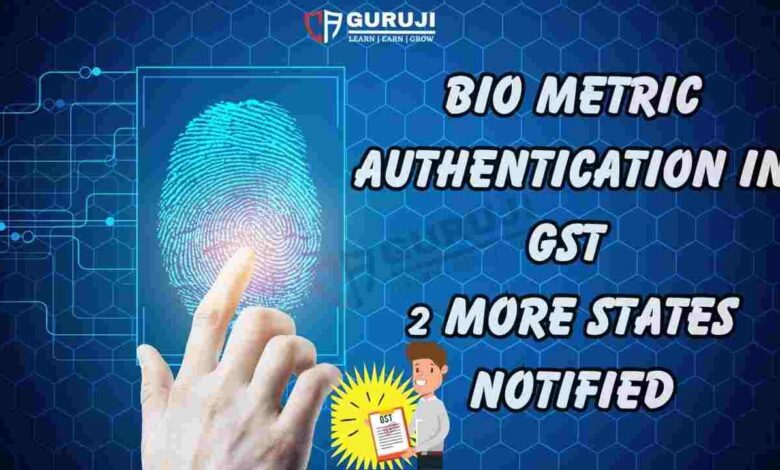
New Delhi, January 29, 2025: The Goods and Services Tax (GST) registration process in Tamil Nadu and Himachal Pradesh has undergone a significant change, with biometric Aadhaar authentication and document verification now made mandatory for all new applicants. This regulation aims to prevent fraudulent registrations, improve security, and streamline the tax compliance process.
Why the New Mandate?
The Indian government has introduced biometric-based Aadhaar authentication to address fraudulent GST registrations and identity-related discrepancies. By linking GST registration with Aadhaar biometrics, the system ensures that only legitimate businesses and individuals receive a GST Identification Number (GSTIN).
According to officials, this move will:
✅ Eliminate bogus registrations
✅ Enhance transparency in tax compliance
✅ Prevent misuse of GST benefits
✅ Speed up the verification process for applicants
Who Needs to Comply?
This rule applies to all new GST applicants in Tamil Nadu and Himachal Pradesh. Existing businesses already registered under GST are not required to undergo biometric verification unless flagged for discrepancies.
Applicants must:
✔ Link their GST application with their Aadhaar number
✔ Undergo biometric authentication at designated centers
✔ Submit necessary supporting documents for verification
How the Biometric Process Works
GST Application Submission: Applicants start by filling out the GST registration form on the GST portal.
Aadhaar Authentication: The applicant’s Aadhaar details are cross-verified using biometric authentication at the nearest GST Seva Kendra or facilitation center.
Document Verification: Essential documents, including business proof and identity details, are reviewed.
Approval Process: Once verification is successful, the GSTIN is issued.
Expected Impact on Businesses
This policy is expected to enhance tax compliance and reduce fraudulent activities, benefiting both businesses and the government. While it might slightly increase processing time initially, officials believe it will speed up approvals in the long run by eliminating manual verifications.
Business owners and tax professionals have mixed reactions. Some welcome the initiative as a step towards greater transparency, while others express concerns over technical challenges and accessibility issues for remote applicants.
A Chennai-based business owner remarked, “While the new system ensures legitimacy, it may cause delays for small traders unfamiliar with the process.” Meanwhile, an industry expert in Himachal Pradesh stated, “This step will significantly reduce GST fraud and improve business credibility.”
Government’s Stand on Implementation
The Central Board of Indirect Taxes and Customs (CBIC) and state GST departments have assured applicants that support centers will be set up to assist with biometric verification. Officials have also encouraged businesses to stay informed and comply with the new rules to avoid registration delays.
Future Expansion to Other States?
Given its benefits, experts predict that biometric authentication for GST registration may soon be expanded to other states in a phased manner. The government is evaluating its effectiveness before implementing it nationwide.
Conclusion
The mandatory biometric Aadhaar authentication for GST registration in Tamil Nadu and Himachal Pradesh marks a significant shift towards fraud prevention and tax transparency. While businesses may face an initial adjustment period, the long-term benefits include faster verification, reduced fraudulent claims, and improved compliance.
Key Takeaways:
🔹 Mandatory Aadhaar authentication for new GST registrations in Tamil Nadu & Himachal Pradesh
🔹 Aims to curb fraud, enhance transparency, and streamline tax compliance
🔹 Applicants must complete biometric verification at designated centers
🔹 Government plans to provide support services for smooth implementation
Businesses and applicants are advised to stay updated with official guidelines and ensure timely compliance.






